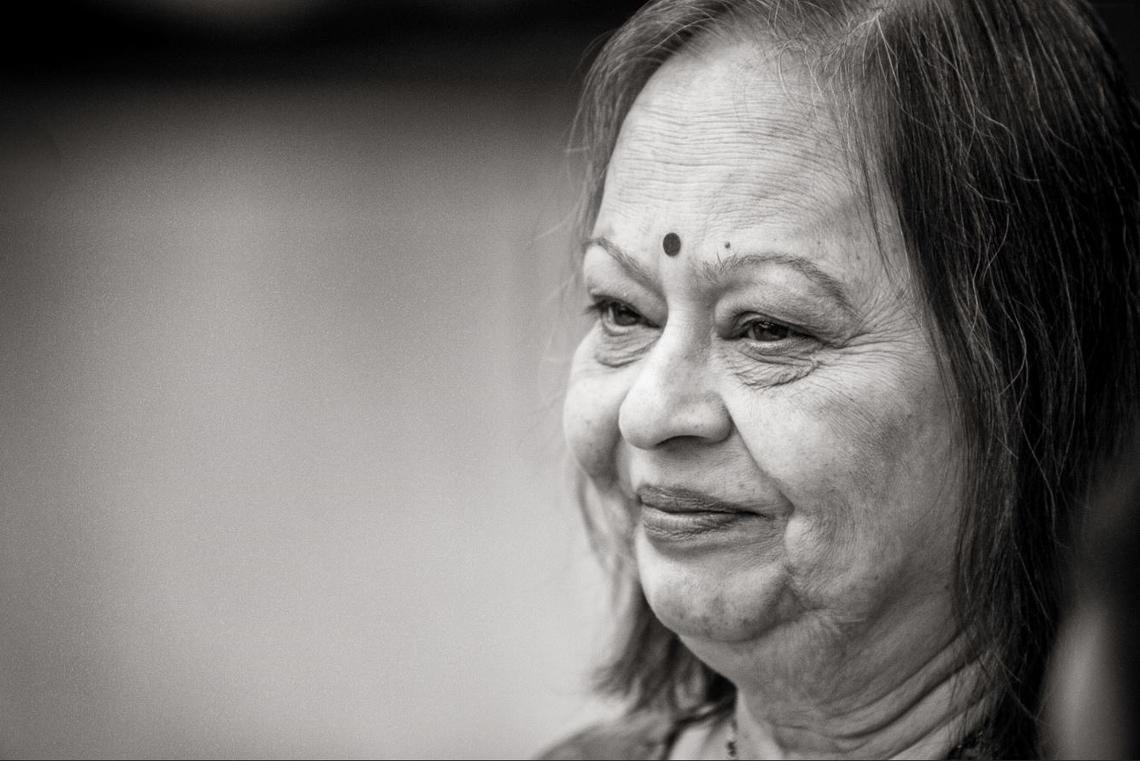Oct. 9, 2018
Connect with Sikh, Hindu and Cree Métis knowledge keepers on Oct. 11

Hindu knowledge keeper Jayashree Bhatt is one of three cultural leaders sharing at a UFlourish event
Robert Massey
What if we set aside our differences and started seeing new cultures, faiths, languages, ideas and people as opportunities to learn and grow?
Hosted collaboratively by the Faith and Spirituality Centre and the Native Centre as part of UFlourish, Knowledge Keepers: Exploring Ways of Wellness highlights the strength of diversity by creating space for open conversation about different understandings of wellness and ways of being.
Over the course of two hours, attendees will hear from three Traditional Knowledge Keepers as they share cultural models and ways of finding wellness. Speakers include Dr. Harjot Singh, MD, from the Sikh community, Dr. Jayashree Bhat, PhD, from the Hindu community, and Elder and Integrative Healing Therapist Kerrie Moore from the Indigenous community.
“In terms of the Hindu and Sikh communities, a knowledge keeper is someone who has really taken the time to cultivate their own spiritual practice and has become a leader within their community. They are often looked to for mentorship and advice,” explains Seth Erais, pluralistic engagement co-ordinator with the Faith and Spirituality Centre.
According to Keeta Gladue, aboriginal student program adviser in the Native Centre, Traditional Knowledge Keepers are akin to cultural PhDs. “Knowledge keepers are people who have worked, learned, been actively engaged in research and the legacy of the knowledge going forward in their cultural tradition,” she says.
Event creates inclusive environment for learning and conversation
In addition to sharing the wisdom of the cultural leaders, the event also includes brief question periods followed by a roundtable discussion and refreshments, encouraging attendees to actively engage in inclusive conversations about wellness.
“This event isn’t about us teaching someone else’s culture, it’s us bringing ourselves to the conversation and creating platforms and a common space for people to speak about their own experiences, cultures, histories, languages and faiths,” Gladue says. “We want to get to a place where we aren’t only tolerant of others, but where we’re actively engaging and learning from one another.”
Erais adds that this type of collaborative event is based on a pluralistic approach: “What we mean by pluralism is creating a more inclusive campus that is built on foundations of understanding and respect where everyone is welcome and has a place.
“We all have our own backgrounds and knowledge. That doesn’t mean anyone is better than the other, it just means we have something to learn.”
Register for Knowledge Keepers: Exploring Ways of Wellness on Oct. 11 from 12:30 to 2:30 p.m. in Council Chambers (MacEwan Student Centre 280).
The University of Calgary’s Campus Mental Health Strategy is a bold commitment to the importance of mental health and well-being of our university family. Our vision is to be a community where we care for each other, learn and talk about mental health and well-being, receive support as needed, and individually and collectively realize our full potential. If you think you need help, please visit resources here. If you think someone you know needs help, find more information here.
